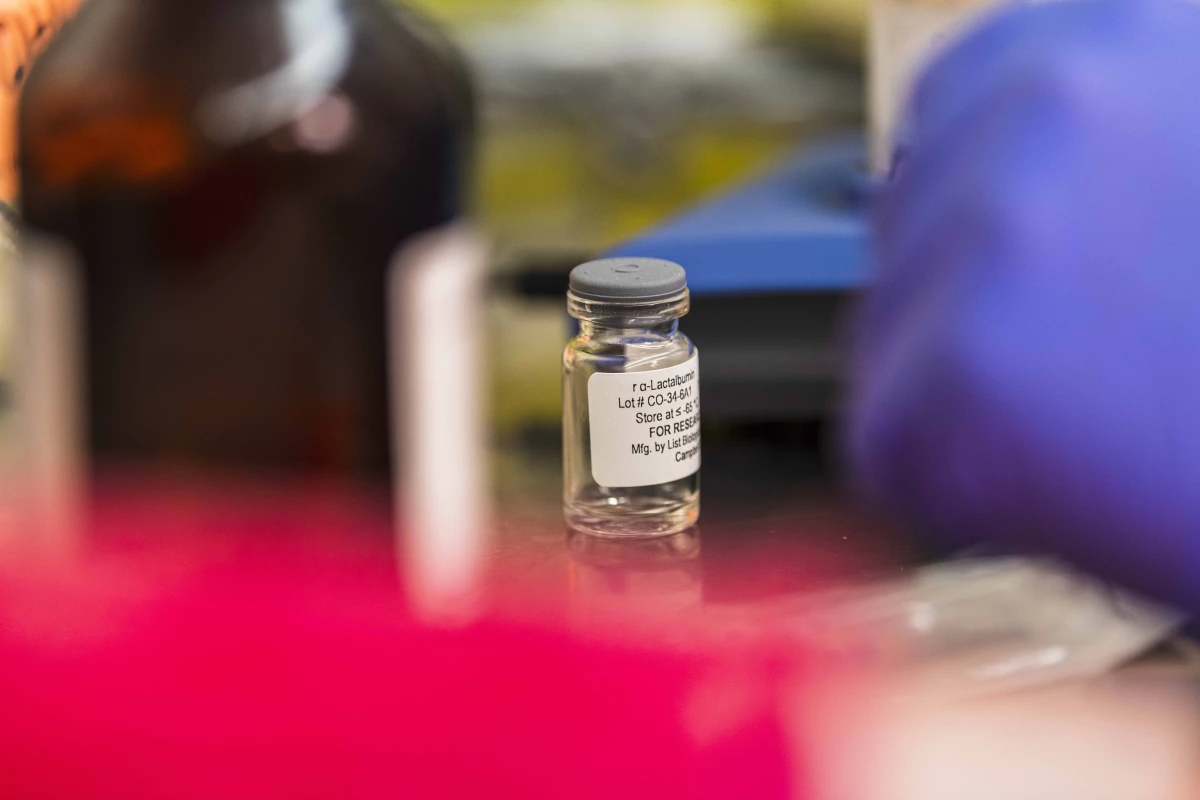After two decades of preclinical research the first phase of human trials are set to begin testing a unique preventative breast cancer vaccine that is designed to target a protein commonly expressed by triple-negative breast cancers.
Around 15 percent of all breast cancers are classified as triple-negative breast cancers, so-called because they lack one of the three main molecular characteristics commonly targeted by modern treatments. This means triple-negative breast cancers are particularly deadly.
A landmark study published in 2010 proposed a novel target for a new kind of preventative breast cancer vaccine. The research indicated breast cancer cells often express high levels of a protein called α-lactalbumin. Triple-negative breast cancer cells in particular were found to commonly express the protein making it a compelling target for a vaccine.
“The general idea behind the vaccine is that α-lactalbumin could be a so-called immunologic target – where we can stimulate the immune system to attack cells that make that protein,” explains Thomas Budd, principle investigator on the trial.
Animal studies have found training the immune system to target cells producing α-lactalbumin can both inhibit the growth of breast tumors and even prevent them from appearing in the first place. Vincent Tuohy, who has been working on this project for almost 20 years, says the goal is to produce a true prophylactic vaccine that can be administered to those at high-risk of developing breast cancer.
“What we’re trying to do is what we call primary prevention,” says Tuohy. “It’s actually preventing the disease from occurring to begin with – it was never there to begin with. We’re not trying to prevent recurrence. We’re trying to prevent the emergence of the tumor and prevent it from ever happening.”
This Phase 1 human trial is designed to offer preliminary insights into the safety profile of the vaccine. The trial will also evaluate immunological responses.
Up to 24 women will initially be enrolled in the study. The cohort will comprise patients previously diagnosed with triple-negative breast cancer who are currently disease-free and they will be followed for around three months to monitor for any adverse effects.
This phase is expected to take around a year. Later trials will enroll more subjects to begin evaluating efficacy. In those later trials the researchers hope to enroll cancer-free healthy subjects who are genetically predisposed to be at high risk for developing breast cancer.
Budd is pragmatic about the long path that still lies ahead. It is estimated the vaccine is at least 10 years away from clinical use, and that is if every stage of the research goes perfectly.
“It will take years to develop and test something like this because it takes years to see whether you’re preventing a cancer that may occur over a person’s lifetime,” says Budd. “But we have to start somewhere – and we’re really excited to take our first step.”
Even if the vaccine is successful it’s widespread use will be limited. The protein targeted by the vaccine, α-lactalbumin, is a lactation-dependent milk protein. This means it is expressed normally when healthy breast tissue is gearing up for breastfeeding children.
So this vaccine could never be part of a childhood vaccination strategy as it could potentially disrupt the natural lactation process. Instead, the researchers speculate the vaccine could be deployed in women at high-risk of breast cancer who are already past their child-bearing years, or in younger women at particularly high genetic risk of breast cancer who may be willing to forego lactation in the future.
Despite any potential limitations in the broad use of this particular vaccine, the researchers are optimistic this vaccine strategy can be applied to other types of cancer. And there are certainly plenty of other researchers investigating a variety molecular targets for many different kinds of cancer vaccines.
Human trials have already started on a vaccine aimed at colorectal cancer, and other kinds of cancer vaccines are in various stages of development targeting everything from skin cancer to lung cancer.
“Our translational research program focuses on developing vaccines that prevent diseases we confront with age, like breast, ovarian and endometrial cancers,” Tuohy says, looking to the future. “If successful, these vaccines have the potential to transform the way we control adult-onset cancers and enhance life expectancy in a manner similar to the impact that the childhood vaccination program has had.”




